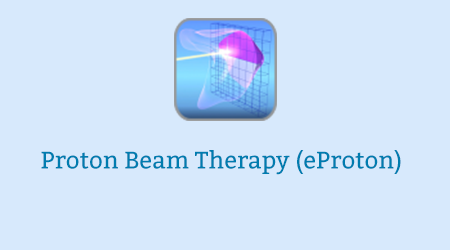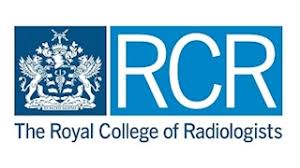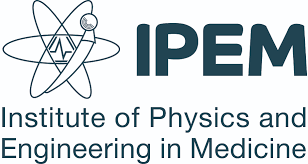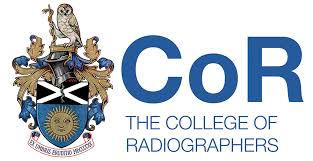About the eProton programme
The Proton Beam Therapy (eProton) programme is a web-based elearning resource produced in partnership with The Royal College of Radiologists (RCR), the Institute of Physics and Engineering in Medicine (IPEM), College of Radiographers (CoR) and Health Education England elearning for healthcare (HEE elfh).
eProton offers useful background and general awareness of proton beam therapy (PBT) for all staff groups working in NHS radiotherapy and related services, especially for those in referral or support centres. This includes clinical oncologists, medical physicists, therapy radiographers and dosimetrists. Other audiences may include professionals working in related services e.g. medical and surgical oncologists, radiologists, clinical engineers, play specialists, specialist nurses and other allied health professionals.
Topics covered include the history of PBT, clinical indications and side effects, physical characteristics and generation of proton beams, treatment planning and delivery, radiation protection, along with the multi-disciplinary patient pathway.
Each elearning session contains interactive content which delivers the educational objectives using a variety of techniques, including animations and video.
More information
Proton beam therapy is a type of radiotherapy delivered with protons as opposed to the photons used in conventional radiotherapy.
The use of protons can enable dose escalation for certain tumours to increase the chance of cure without exceeding acceptable doses to nearby normal tissues. For other tumours which do not need higher doses than with photons, protons can allow a reduction in dose to normal tissues and therefore in late (permanent) effects of treatment.
Since 2008, the NHS patients with selected indications believed most likely to benefit from PBT have received treatment overseas funded by the NHS/UK taxpayer. However, the NHS has commissioned two UK PBT centres, at The Christie in Manchester (opening mid-2018) and at University College Hospital in London (opening 2020). A number of private centres are also planned. As the UK centres open, more patients who are likely to benefit will have access to PBT closer to home.
Meet the team

Gillian Whitfield
eProton Clinical Lead
David Eaton
Chair of the Radiotherapy Special Interest Group (SIG) at IPEM
Anna Campbell
Training Policy and Projects Manager, The Royal College of Radiologists (RCR)
Martin Sinclair
Programme Lead, HEE elearning for healthcare
Neha Baj
Content Development Lead, HEE elearning for healthcare
Jasmine Deol
Lead Learning Designer and Project Manager, HEE elearning for healthcare
Authors

Gillian Whitfield
eProton Clinical Lead
Roger Taylor
Professor of Clinical Oncology, Swansea University
David Eaton
Chair of the Radiotherapy Special Interest Group (SIG) at IPEM
Adam Aitkenhead
Principal Clinical Scientist
David Lines
Principal Clinical Scientist
Mark Hardy
Radiation Protection Advisor for Radiotherapy
Hazel Pennington
Lead Radiographer on the Proton Beam Therapy Project at The Christie, Manchester
Kevin Sullivan
Head of Cancer Operations, UCLH
Laura Allington
Operational Lead for Proton Beam Therapy, UCLH
Rovel Colaco
Consultant Clinical Oncologist
Other contributors
We would also like to thank the following individuals for providing images, video clips and support for the project:
- Anna Campbell and Dr S Ramkumar – Royal College of Radiologists (RCR)
- Spencer Goodman – Society of Radiographers (CoR)
- Kathryn Surtees – Institute of Physics and Engineering in Medicine (IPEM)
- Laura Allington – University College London Hospitals (UCLH)
- Jenny Son – Varian Medical Systems, for providing images and video clips for the programme including the image on this page
- Danny Indelicato – The University of Florida Proton Therapy Institute
- Louise Boyle – National Proton Beam Therapy Service Development Programme, NHS England
- Richard Amos – Associate Professor of Proton Therapy Research Lead for Clinical Proton Therapy Physics, University College London Hospitals (UCLH)
- William Hanson – Varian Medical Systems
- Damon Kirk – QFix
How to access
In order to access the Proton Beam Therapy (eProton) programme, you will need an elfh account. If you do not have one, then you can register by selecting the Register button below.
To view the Proton Beam Therapy (eProton) programme, select the View button below. If you already have an account with elfh, you will also be able to login and enrol on the programme from the View button.
If you have already enrolled onto the Advanced Radiotherapy (ART) programme, you will also be able to access the eProton sessions via this programme.
NHS healthcare staff in England
The Proton Beam Therapy (eProton) programme is also available to NHS healthcare staff via the Electronic Staff Record (ESR). Accessing this elearning via ESR means that your completions will transfer with you throughout your NHS career.
Further details are available here.
Not an NHS organisation?
If you are not an NHS health or care organisation and therefore do not qualify for free access elfh Hub, you may be able to access the service by creating an OpenAthens account.
To check whether or not you qualify for free access via OpenAthens, you can view the eligibility criteria and register on the ‘OpenAthens’ portal.
Registering large numbers of users
If you are a HR, IT or Practice Manager and would like to register and enrol large numbers of staff within your organisation for access onto the Proton Beam Therapy (eProton) programme, please contact elfh directly.
Organisations wishing to use their own LMS
For HR departments wanting to know more about gaining access to courses using an existing Learning Management System please contact elfh directly to express interest.
More information
Please select the following link for more information on how to use the elfh Hub.






